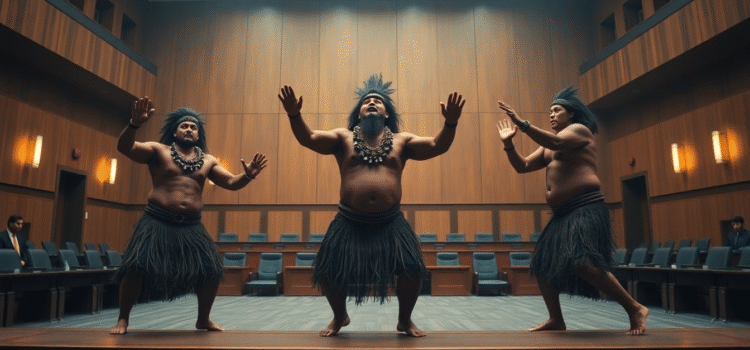
Three Māori MPs Suspended for Haka: Underlying Cultural Tensions in NZ Parliament
Introduction
In a recent event that has sparked significant controversy, three Māori Members of Parliament were suspended for performing a haka, a traditional dance integral to Māori culture. This incident highlights the ongoing cultural tensions in the New Zealand Parliament, drawing attention to the representation and respect of Māori cultural rights within political arenas. The basis of the suspension stemmed from the MPs’ protest against comments they felt were racially insensitive, using the haka as a cultural statement. This blog post explores the underlying issues of cultural expression and recognition in political discourse.
Importance of the Haka and the Incident
The haka is not merely a dance; it is a powerful form of communication in Māori culture, used to express deep emotions and solidarity. The Māori MPs’ decision to perform the haka in Parliament was a direct response to comments they deemed disrespectful. The suspension following this act has reignited discussions about the place of Māori traditions in formal institutions. The incident has become a focal point for debates around the political repercussions of haka and how cultural expression can intersect with parliamentary rules.
Representation and Cultural Rights in Parliament
Māori constitute approximately 16.5% of New Zealand’s population, making adequate representation and respect for Māori cultural rights crucial in Parliament. However, this incident shows that cultural tensions in Parliament remain a significant issue. It underscores the necessity for inclusive practices that respect indigenous rights in New Zealand, fostering an environment where Māori representation in government can thrive without conflict over traditional expressions.
Historical and Social Context
The historical significance of the haka dates back to before European settlement, where it was used in various ceremonial contexts. In today’s political arena, however, the haka’s interpretation as a form of protest is not universally understood, leading to cultural conflicts in governance. This clash reflects broader issues of ethnic diversity in government and how cultural expression in politics can be navigated without incurring political tensions.
Implications and Future Discussions
The suspension of the Māori MPs serves as a catalyst for revisiting parliamentary practices regarding cultural expressions. This incident has sparked an important conversation about how indigenous rights are safeguarded in political discourse and how traditional cultural practices like the haka can impact legislation and political discussions. Moving forward, fostering a dialogue around these issues is crucial to achieving an equitable balance of cultural respect and political process.
Conclusion
The suspension of three Māori MPs for performing the haka is a stark reminder of the cultural clashes still present in New Zealand Parliament. It is imperative that this incident serves as an opportunity for reflection and progress towards more inclusive and culturally aware governance. Readers are encouraged to engage in the conversation about cultural rights and expressions within political spaces, contributing to a broader understanding and respect for Māori traditions and their rightful place in shaping New Zealand’s political landscape.
FAQs
What is the significance of the haka?
The haka is a traditional Māori dance that carries deep cultural significance, often used to communicate strong emotion and unity. It is an important aspect of Māori heritage and is utilized in various cultural and ceremonial contexts.
Why were the Māori MPs suspended?
The Māori MPs were suspended after performing the haka in Parliament, which they used to protest against comments they perceived as culturally insensitive. The suspension continues to highlight the tension between cultural expression and parliamentary rules.
What was the reaction to the suspension?
The suspension has sparked widespread debate over Māori representation and cultural rights in government, as well as the interpretation of traditional haka in political settings. It has intensified discussions around the need for inclusive and respectful practices that honor Māori traditions.
What are the broader implications of this incident?
This incident confirms the ongoing need for dialogue and revisitation of parliamentary rules to better accommodate cultural expressions, reflecting the multicultural nature of New Zealand’s society and ensuring fair representation of all ethnic groups.








Comments